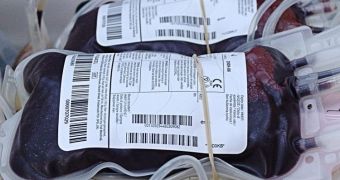A new class of proteins responsible for controlling the way in which the body responds to hypoxic situations (in which insufficient amounts of oxygen are available to conduct regular processes) has just been discovered by a collaboration of investigators in the United Kingdom.
Experts at the University of Nottingham, the University of London and Queen's Mary University Barts Cancer Institute (BCI) published their discovery in the latest issue of the top scientific journal Nature Cell Biology.
The hypoxic response is a set of measures that the body employs naturally when faced with a shortage of oxygen. When it malfunctions, it can lead to the development of numerous, severe diseases, and can also contribute to accelerating the growth of various forms of cancers.
By identifying this new family of proteins involved in these processes, the investigators basically opened up a new avenue for research in developing drugs targeted specifically at one of the root causes for these diseases.
The UK Biotechnology and Biological Sciences Research Council (BBSRC) sponsored the research.
The team says that each individual cell is able to detect and respond to reduced amounts of oxygen, by triggering the production of a protein called EPO. The molecule then goes on to ask the body to produce increased amounts of oxygen-carrying red blood cells.
An increased amount of such cells in the bloodstream leads to an increase in the efficiency of oxygen absorption, helping those climbing mountains, for instance, gather as much oxygen from the environment as possible.
When tumors develop, cancer cells literally hijack this mechanism to create their own blood supply, whose sole responsibility is to help the tumors grow. This is why some forms of cancer spread so fast.
What the UK collaboration found was that “LIM domain containing proteins” (LIMD1) are also involved in this process. “The results from this research represent a significant advancement in our understanding of precisely how the hypoxic response works,” Dr. Tyson Sharp explains.
“It will help researchers develop better drugs to fight cancer and also other human diseases that are caused by low levels of oxygen within our body such as anemia, myocardial infarction (heart attack), stroke and peripheral arterial disease,” the University of Nottingham molecular oncologist adds.
“Further work in this fascinating area is now continuing at Barts Cancer Institute at Queen Mary University of London and will form the basis of a whole new additional research theme for my group,” Sharp concludes.

 14 DAY TRIAL //
14 DAY TRIAL //